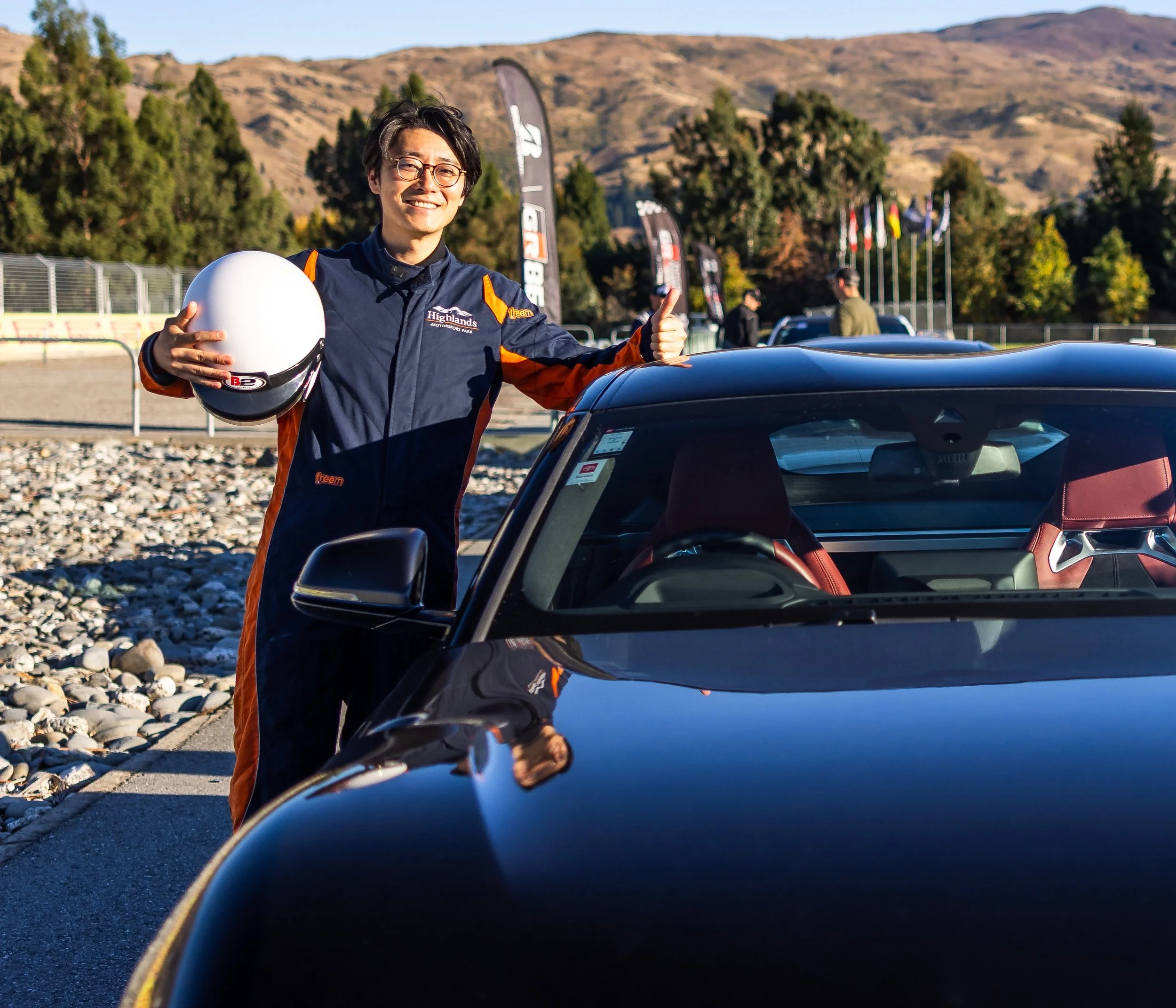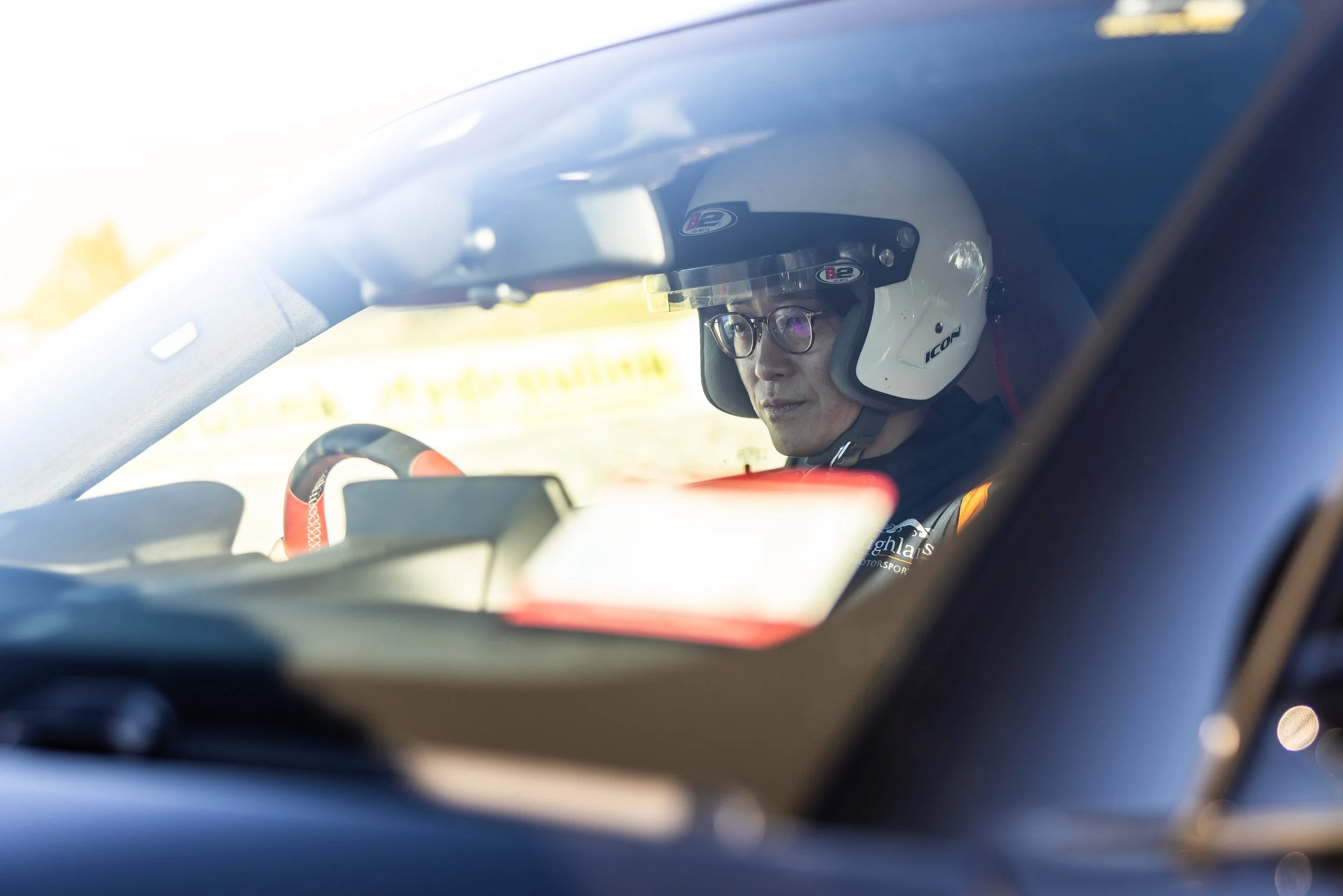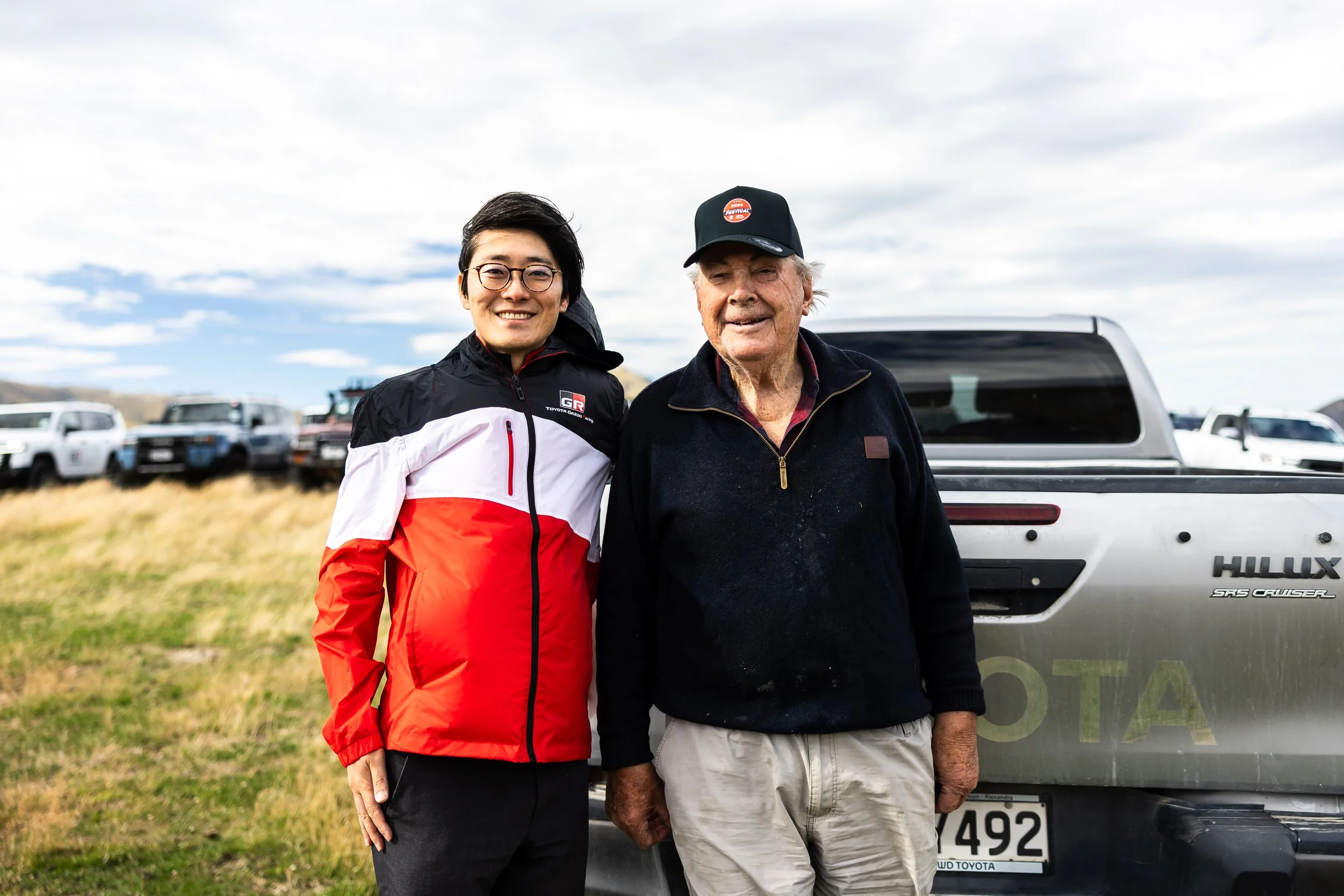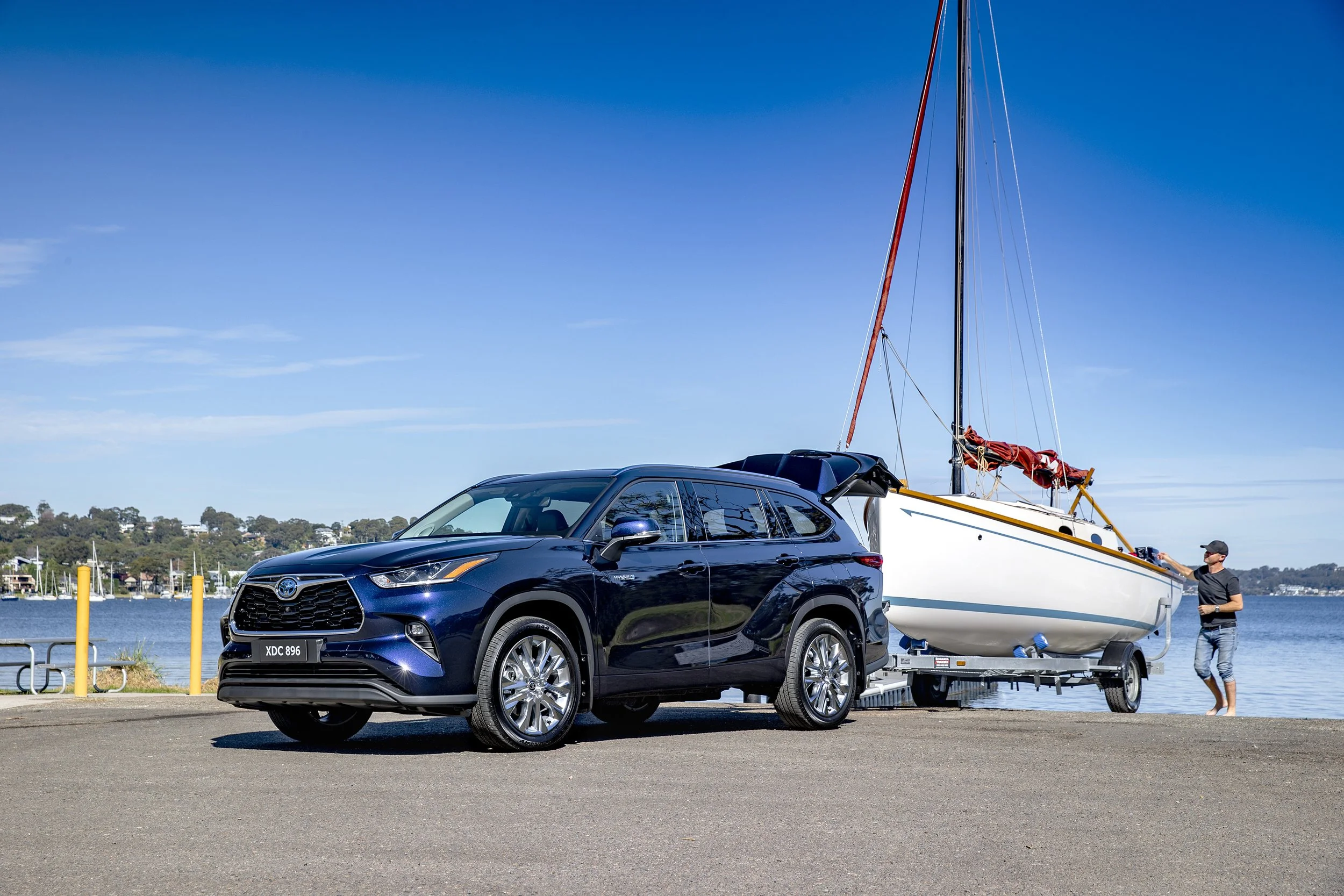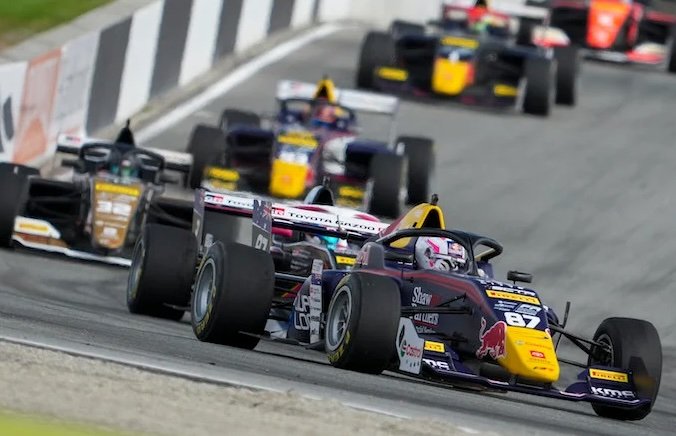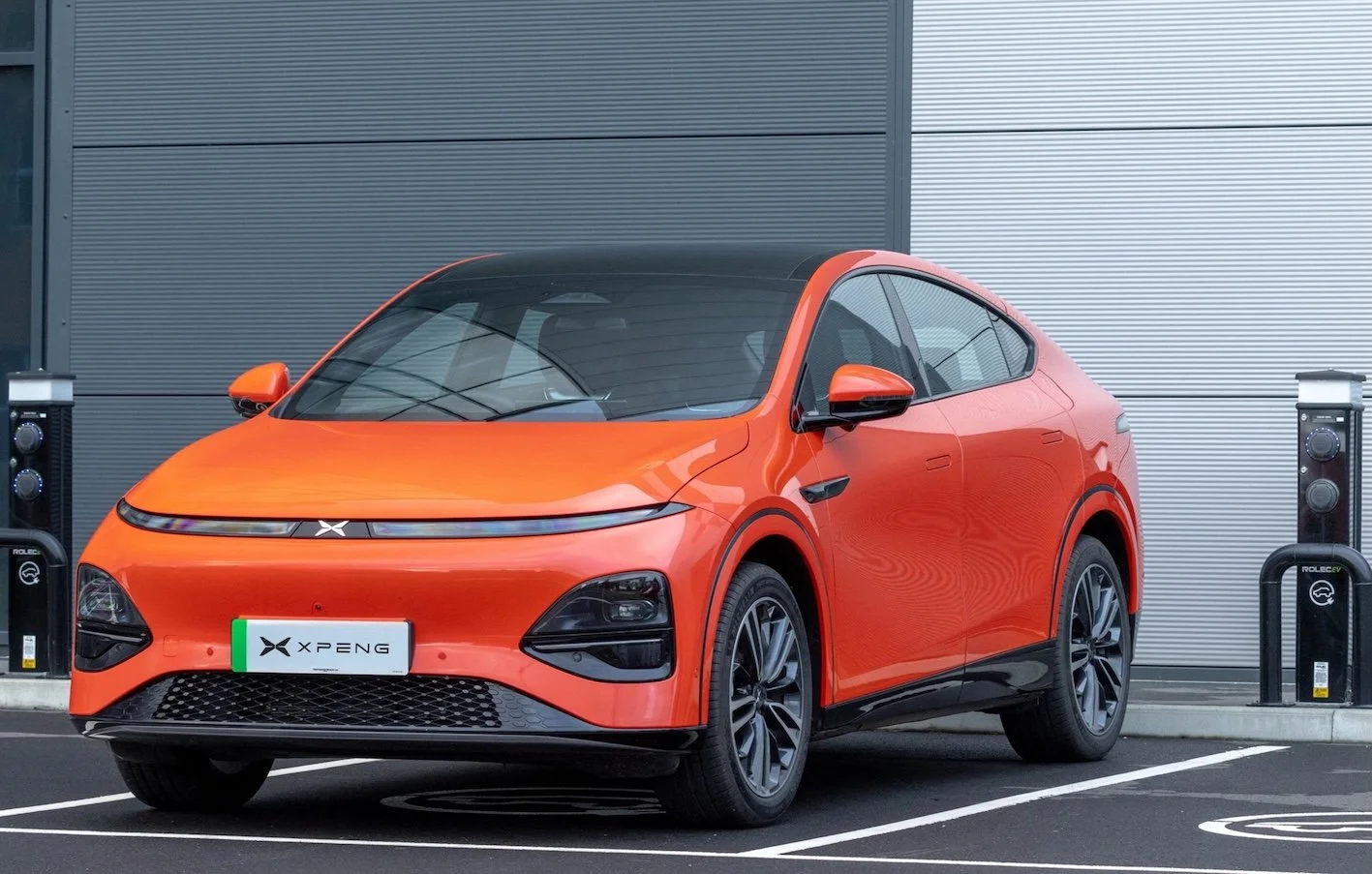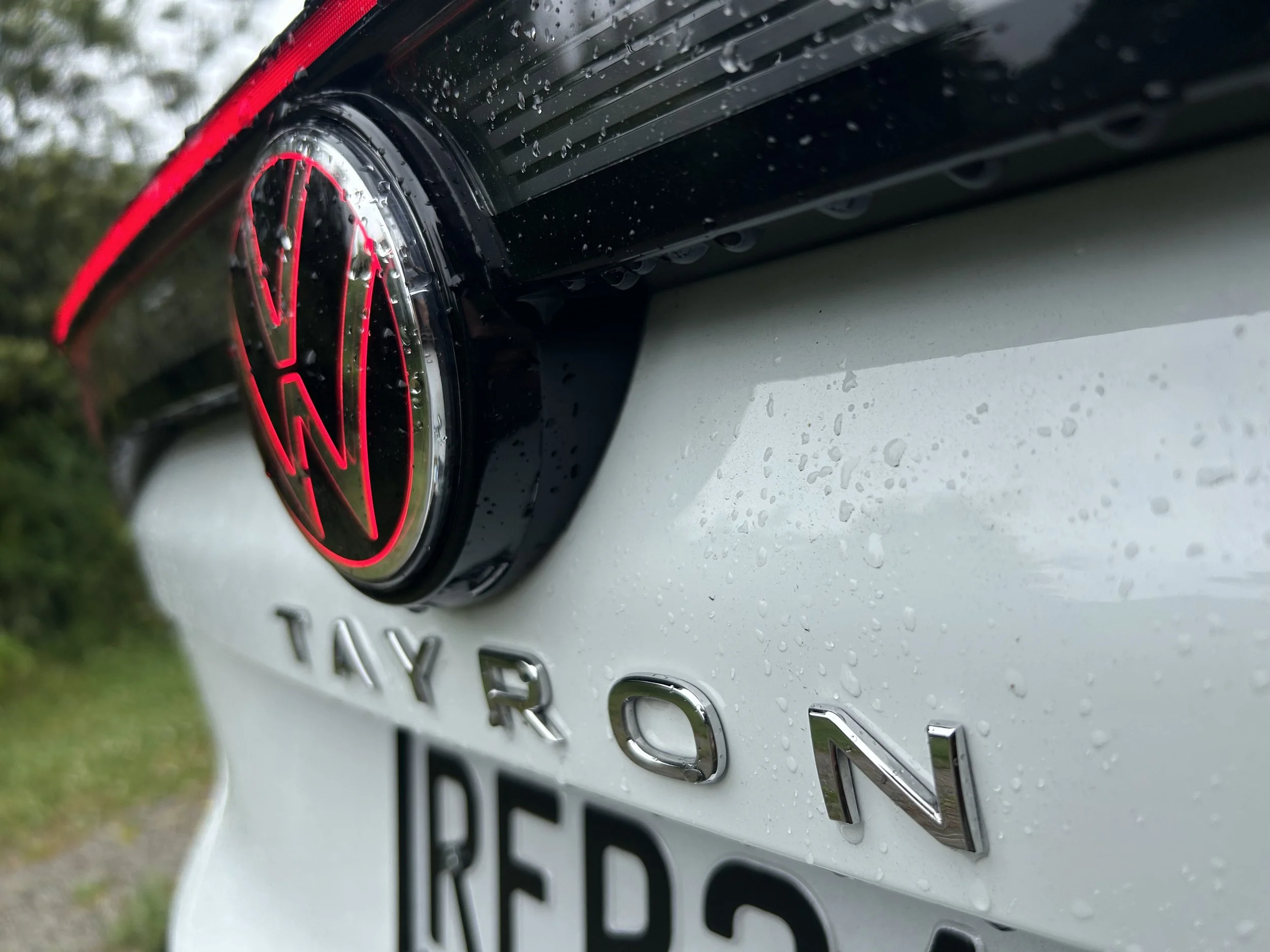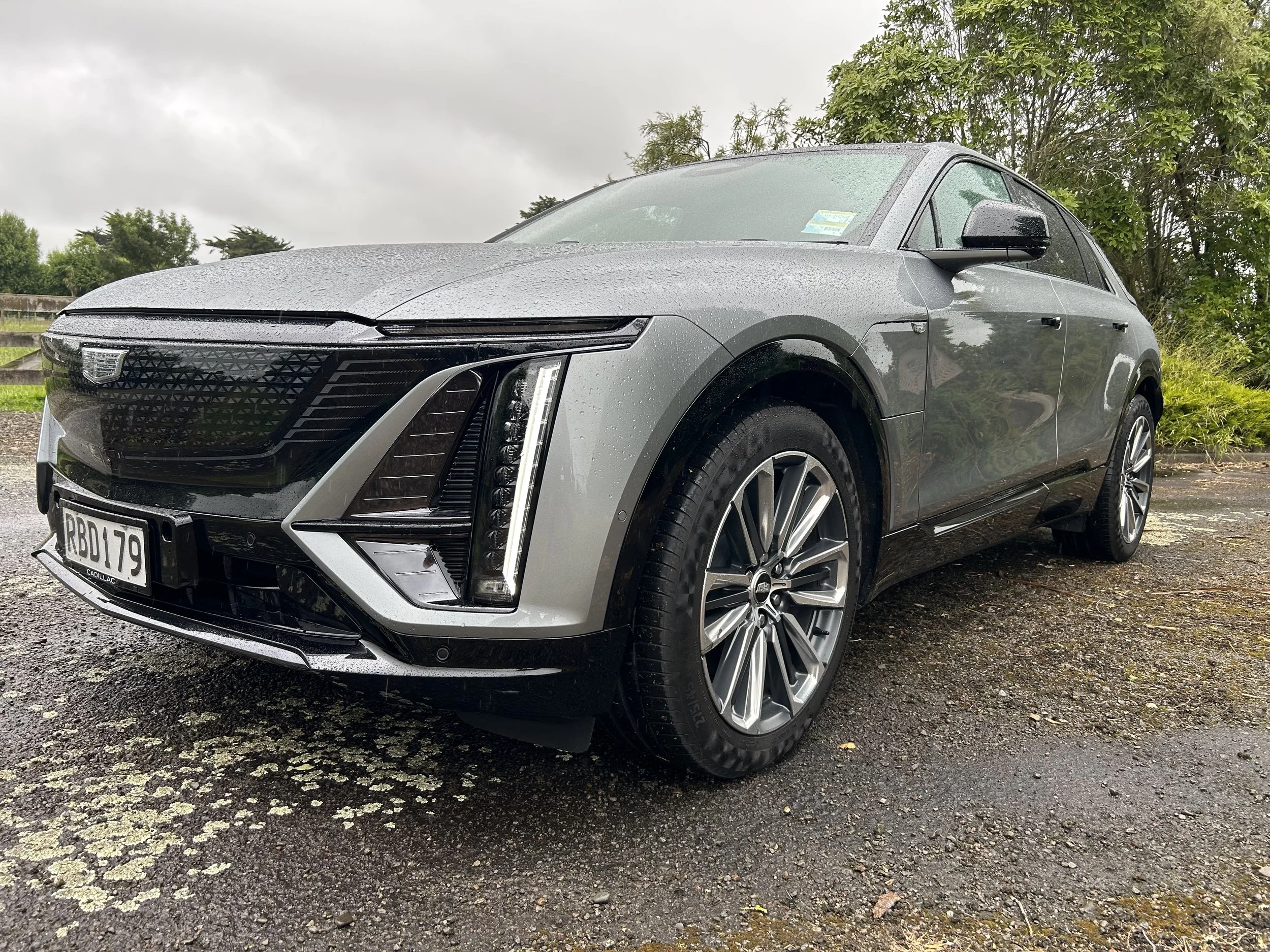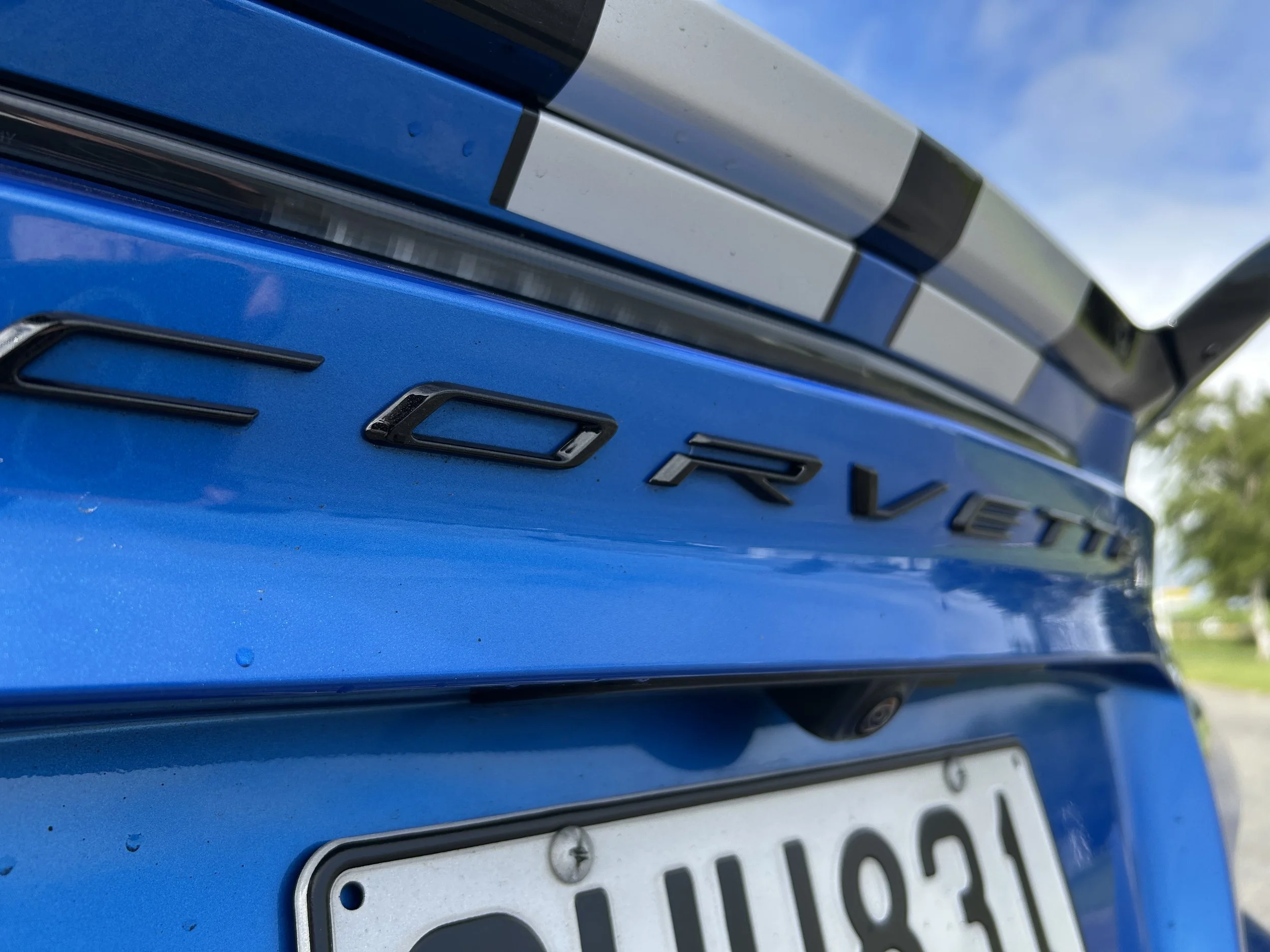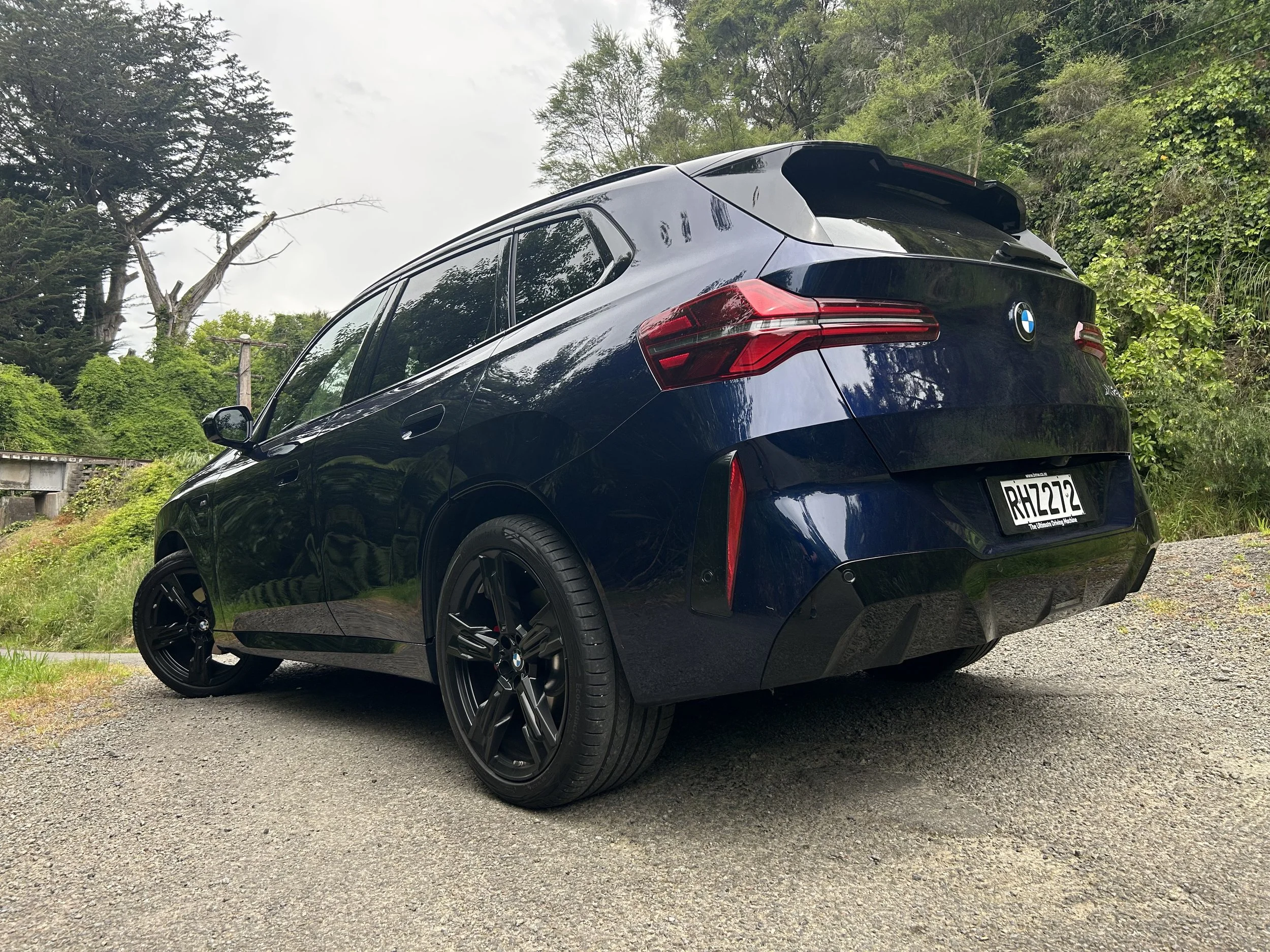Electric, hybrid, hydrogen - he knows them all
/Exclusive: Toyota New Zealand’s new boss, Tatsuya Ishikawa, has a fascinating background and some interesting ideas for Toyota’s future path here.
DEFLATED overall volume continues to hamper the new car sector, but the biggest individual performer is still finding reason to cheer.
Toyota New Zealand is celebrating a milestone achievement with its core sports utility, the RAV4, cementing as the country’s top-selling new vehicle for this year’s first quarter.
The Palmerston North-based distributor says this marks a significant shift in consumer preferences, though it notes there’s still abiding consumer interest the one-tonne utility products that previously took that citation.
Toyota’s Hilux was the second-strongest performer in the first three months of this year and the Ranger was third; a drop on previous years when the Ford all but consistently outsold both products from Japan’s leading marque.
Toyota NZ’s strong run comes with announcement that the man who has been leading the company on a provisional basis for almost a year is now firmly in charge.
Tatsuya Ishikawa is the first Japanese national to be TNZ’s chief executive officer; all previous appointees since the brand established here in 1966 have been New Zealanders.
That all changed after Wellington-born Neeraj Lala’s abrupt departure in mid-2024. Lala took a leave of absence from June 27, with his resignation confirmed on July 23.
When named as acting CEO, Ishikawa was based in Auckland running what he described as “a special project” for TNZ and what the brand’s media team preferred to call “a range of innovative development projects for the company.”
Confirmation as CEO came on April 10. He has moved to Palmerston North, where the make’s national headquarters bases, albeit without his wife and three children, aged 12,10 and six. They were in Auckland but have moved back to Japan, as this is better for the youngsters’ education.
In announcing his role having become permanent, TNZ said Ishikawa will lead TNZ into its next chapter with a focus on delivering sustainable mobility solutions and exceptional customer experiences.
It spoke of his focus on bringing the global perspective of Toyota Motor Company in Japan to TNZ, with domestic market strategy and network matters being the responsibility of senior members of staff.
He has promised no changes to the TNZ corporate structure. It’s business as usual.
What do we know of Tatsuya Ishikawa? Even though he has been in NZ since 2023, he has been low profile. This is his first interview here.
Communication came naturally to his predecessor; Lala was the national industry’s highest-profile figure.
Ishikawa likely won’t be so keen to hunt headlines, but vows Toyota’s voice will be heard on important matters.
Whether that’s speaking directly to his present and past customers - and with Toyota being easily the strongest brand here, not just in current volume but also historically - that’s likely most of the population, but also the industry and Government.
Ishikawa’s own story is impressive. He holds a rare credential among NZ industry figures; he has been fully hands-on in developing motor vehicles.
Modesty prevails, but word is that he is no small cog within Toyotadom. The Japanese corporate structure can be daunting and Toyota is a vast machine; in-house suggestion seems to be that, with Ishikawa, doors will open just that little bit more easily.
He’s not much of a hardcore fan of motorsport - but understands the importance to NZ - but impresses he is nonetheless a ‘car guy.’
That shows with his involvement with a range of Toyota small cars. Those undertakings included a role in creating the second-generation C-HR, from concept to car.
Two generations of Yaris, including the model that won 2021 European car of the year, and the previous-generation Yaris Cross are other landmark projects also bear his fingerprints.
He joined Toyota Motor Corporation in 2005 with a master’s degree in engineering and began his career in project planning for the gen two Yaris, a role that involved frequent travel to Europe as that car was built in France.
Business Planning for first-generation C-HR and on business reforms in the European Union have also occupied him.
He involved in Toyota’s small car development alliance with Peugeot, spent five years working in the revenue management group for Toyota Motor Europe.
Immediately before coming to NZ, he was involved in global product planning for small vehicles and all Toyota’s battery electric models.
Question: Your immediate predecessor, Neeraj Lala, cultivated a high media profile. Is that also going to be your style?
Ishikawa: Yes and no. We have a very strong leadership team. I want to cascade down any topics to the right person about the right message to the network. So this is my style. So rather than just one person, we have wider responsibility.
Do you think it's beneficial for Toyota, as easily the biggest company, with the biggest market share, to also be the loudest voice?
Yes of course. We have to influence any decisions as much as possible to deliver the right message to any government from the customer point of view. We have a responsibility to protect people and deliver the right product for the customer.
Toyota New Zealand has long dominated the new vehicle scene here; what challenges does it face to maintain that position? There are more competitors in the market than ever and a new country, China, is very active.
I have confidence we will maintain high market share. We have a very strong network, we have a strong product … we are developing many things. That's why I am confident.
What can you relate about ongoing NZ-specific market and product imperatives for Toyota and Lexus here? Is there anything you can speak about that, how those brands will develop further in NZ?
We are trying to support many customers. So new cars, used cars, whatever. We are in quite a unique position in NZ; we have capability to develop and provide any product well.
For Lexus, of course we want to be No.1, it is how we can create the Lexus experience. It's more welcoming; more luxury experience. So it's not talking about only the product, it’s providing the experience.
At this point, Lexus NZ boss Andrew Davis, also TNZ chief strategic officer, joined in, adding: “Our breadth of product offering still remains really strong and Ishikawa-san’s background from an engineering of product side of the global business, it helps us in the multi powertrain sort of multi pathway approach that we're taking. He's got more experience with those products globally. When we say we think we need to still have a strong voice it's because we're better connected now into global and our strategy is still multi-pathway.
“So, we feel like because of our scale and our size, we have to keep being proactive to make sure we can bring all those options to customers. He (Ishikawa) just adds a unique perspective with his background and with his connections.
Several products are of particularly high interest here; one is Hilux. Utilities are high profile here and account for significant market share; it’s been 10 years since yours was the market dominant model and there’s an increasing count of competitors coming from China. How far away is new Hilux and what are your expectations for it?
For future product I can't say, it's a global matter, it's quite hard.
There are a lot of good points for the Hilux, it has capability. Electrification is part of the discussion. So last year we brought the Hybrid Hilux. I believe it’s the right pathway.
Ford developed the F150 Lightning … it was not good, customers didn’t accept some capability changes.
We have to make sure we have the right technology and then what customers need and then we have to combine customer requirement and the future as well.
For the future, we have to consider electrification for the Hilux, but today, I really have confidence that the hybrid is the best way to making sure it meets Kiwi requirements, like towing.
We want to change some products, bring the newness. It’s hard to tell you about a new product, but it’s coming.
Hybrid is the preferred choice of NZ motorists with interest in electric-involved drivetrains; your brand dominates that sector but how long hybrids will remain popular here - would you see them holding dominance until the end of the decade?
Definitely. From a global point of view, the battery EV is struggling. Customers are (more) willing to buy hybrid or PHEV. It depends on the situation.
Some customers like me, care for the battery (his company car is the fully electric Lexus RZ). I don't drive so much, I don't do towing. But NZ people and their lifestyle, it's quite diverse, so that's why hybrid is the best case … and PHEV is also good.
I think it depends on lifestyle, with the hybrid anyway, it will be dominant in this market and PHEV will shift. This is my view.
Some customers may have misunderstanding, education is important. Then the customer can choose the right powertrain, the right product.
Three weeks ago I talked about the hybrid Hilux to a customer loyal to the Hilux … he was hesitant to purchase the hybrid, but when I start talking about the true capability, he changed his mindset and said “oh, this might be good option for me”.
In Japan, everybody knows about hybrid. But I remember when I was young, when Toyota started with the Prius, my dad told me, “oh, this is fantastic technology, but we have to charge something”. He misunderstood.
We are fully committed to our CO2 journey toward 2050. This is a strong commitment. It’s (also) a journey.
So what is your view of the potential for fully electric vehicles in NZ?
Before coming here my role was global product planning for battery electric vehicles. I worked together with US, Japan, China and Europe. The question: ‘How we can create the situation where a customer wants to buy battery EV?’
I think the key point is infrastructure. Other considerations are affordability and the capability of the product. All of these need to happen to accelerate the battery EV. I believe BEV is one of the good products, but it is not always for all.
For some customers it’s now good. Norway, this year is at 100 percent battery EV uptake and our bZ4X is No.1. We have confidence, but some action - perhaps from governments - is needed.
Toyota Japan has just shared a new electric vehicle strategy; it aims to produce 1.5 million EVs by 2026. 3.5m by 2030. And it plans to have 15 EV models developed in house by 2027. What impact does this have on NZ?
Not so much. From a global demand point of view, New Zealand's new car market is really very small. Yes, that's why we can take any car, any powertrain if we need it. We are aiming for steady growth for the Toyota volume point of view.
Andrew Davis: The product’s accessible to us, we can take any product and our customers don't necessarily want BEV as the preferred option today. So that changes the way we approach product here.
But 15 models. You'd have to think some would have to be of interest?
They are, it's not a no. The initial focus is markets with high BEV share. But that doesn't mean we don't get access to the product … if it will work here.
So how important will it be for your best sellers, RAV4 and Hilux, to format to more intensively electrified drivetrains. Is plug-in hybrid the next step for those vehicles?
We’ve not specified, it's hard to say.
Highlander is imported from the United States, which is also the sole production point for that vehicle. What impact will Trump tariffs have on that vehicle - in a worst case scenario could it become untenable as a US-sourced vehicle?
It depends on the political issues. We don't know tomorrow what Trump will say.
Is it possible for that vehicle to be sourced from another plant if it had to be?
It’s part of a discussion, but we haven't decided yet. It's hard to change location from the US to somewhere else. It's hard to predict … we’re trying to adapt to the current situation. We can't say yes or no because no one can say yes or no.
Your background includes working on the hydrogen fuel cell projects at TMC. It’s special to you. TNZ ran a car sharing trial with the hydrogen Mirai in Auckland - does hydrogen fuel cell have a future here with Toyota NZ?
I still believe hydrogen is the right energy. We have to change from gas and coal to more renewable energy. We strongly believe hydrogen is the right technology for heavy industry, for example. So, electric for passenger car, electric for houses, electric for something … but hydrogen also for products, like a truck.
TMC has announced a global bus venture and we (TNZ) are supporting a local company … we strongly believe hydrogen is a good energy source in NZ.
Potentially, we can export hydrogen from NZ to other countries rather than importing oil. NZ has to really think about its future energy strategy, about ways of connecting with other countries, supporting innovations, creating new business. This is my view.
Mirai is a world topic and sharing is just a trial now. We are working with other cities for creating hydrogen sharing and creating a system. The hydrogen station network is expanding - Auckland, Hamilton, Palmy and to Tauranga. So we’re looking to see how can we leverage this opportunity in each city.
Unfortunately, we had to change the location of the hydrogen station at the Port of Auckland to the south of Auckland, so it's much harder … someone has to pick up the car from the central city and take it to the south of Auckland, fill it with hydrogen and then come back to Auckland.
What will happen with Mirai in NZ and will it ever go on sale?
Andrew Davis: The car share trial was obviously designed to show that hydrogen is an energy option in cars, we wanted to get corporates involved to show the future may not just be BEV. We've been waiting really on the availability of hydrogen. We have 19 current model Mirai in the country and we have some available for lease. We’re just targeting strategic customers who accept the fuel situation.
We’re just working through the lease plan now. There's a couple of factors. One is if it should be a dry lease or a wet lease, that is, including the hydrogen or not. Generally customers asked for a wet lease with the hydrogen so we’re working with Hiringa on what the price of that is. And then we're saying that the lease price needs to be relative to the market. So's that's what we’re working through at the moment.
TNZ invests heavily into motorsport - the CTFROC single seater and TR86 championships are vital series - but are obviously expensive exercises. Is there enough value to the brand to continue with them?
Ishikawa: Interesting question. I think everybody has a slightly different opinion, but I think in NZ it's quite unique, everybody loves motorsport. This is my perception. It’s part of the strong loyalty to Toyota as well. So I want to support such a passion.
(TMC chairman) Akio Toyoda is trying to activate more for the motorsports space. On top of that, we have a responsibility to provide a product experience that the customer wants.
But we have to be really conscious about the carbon neutrality and financially. We are working through that point with TMC, but we want to continue with this racing. That’s why we have to be more financially sustainable and then we have to do lots of things. We call them kaizens, it’s a daily operation improvement, and then we are trying to make a big record for cost reduction or revenue improvement, this is what we can do and control, then we can provide any opportunity to the
customer, rather than just cutting something. So, this is my view.
Your career path has taken you to some very interesting projects and opportunities - but did you anticipate becoming the CEO of a national distributor; is this now the peak of your career taking you to retirement or do you anticipate more opportunities elsewhere from TMC?
It's a hard question. I’m proud to be CEO here. NZ is a good space for innovation … it’s really interesting for me.
It’s also a market in which there is a deep connection with customers and with dealers.
This is quite a unique challenge for me.


